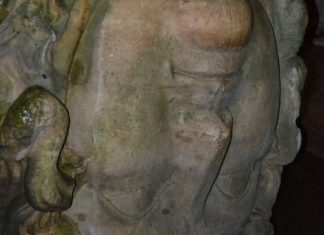Scrupulously treating the giant Bonar with the respect due a local king, he had taken him on a tour of the countryside, letting him see the manifold blessings Roman rule had brought to Britain: the busy mines where lead, silver and other ores were dug, the smelters where the metal was extracted, the prosperous shops of the artisans, the rich life of the lords in their great country villas, where all kinds of produce were grown for their own use, sold in the cities, or exported in the thriving trade conducted between Britain and the rest of the Empire.
In the end the intelligence of the Piet leader, which Constantine had been counting on, had seen the advantages of a treaty of peace over execution. Once the treaty was signed, Constantine himself had ridden northward with only the small bodyguard as a token of good faith to install Bonar officially as ruler under Rome of the farthest northwest comer of the Empire, just as King Tiridates ruled the farthest northeast comer.
These activities had consumed much of the winter and had been very tiresome, so Constantine had remained with Bonar for a while, enjoying the hunting and feasting and training the Piet chieftain’s men in using the new weapons Rome supplied them. He had barely finished that pleasant chore when Eumenius’ urgent letter had arrived.
Room at Eboracum
When he came into the room at Eboracum where his father lay, a quick glance told Constantine that Eumenius had not been wrong in sending for him. The waxy pallor of Constantius’ cheeks, the shallow hurried breathing, the grave faces of the men gathered about the couch all testified to the fact that the Emperor of the
West was dying. Eumenius got up quickly and went to meet Constantine, who had come directly to the sick room in his muddy boots, pausing only to drop the heavy cloak from his shoulders.
“Thank Jupiter you are here,” the plump secretary said in a low voice, for the sick man was sleeping. “The attack was sudden, and severe. I think there is bleeding within his body.”
“Then there is no hope?”
Read More about Far north of the Antonine Wall






